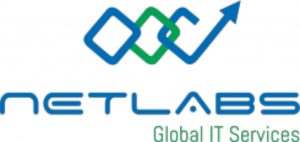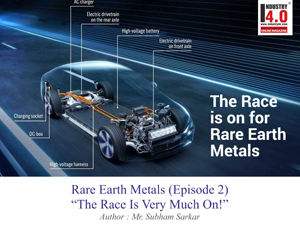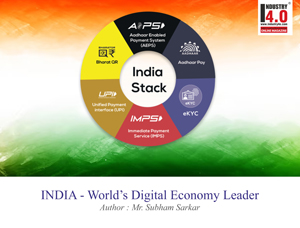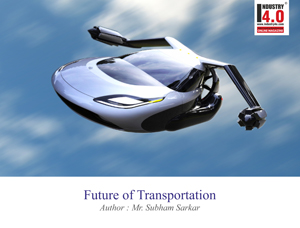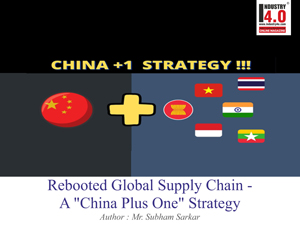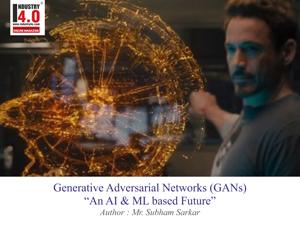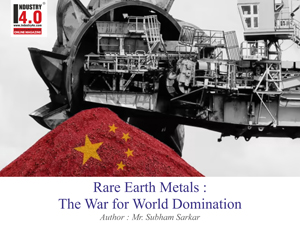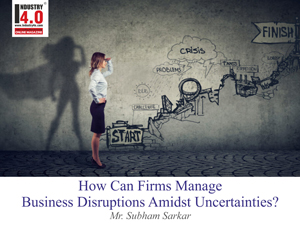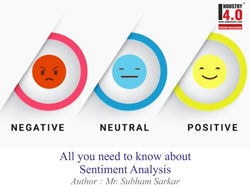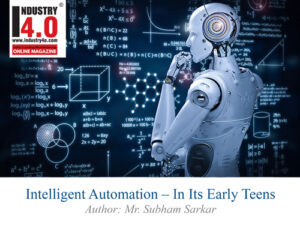“Quantum Computing – This Hype is for Real!”
Is Quantum Computing the Big Leap for Mankind? Will it take us to “Where no man has gone before”?
“The world has been changing even faster as people, devices, and information are increasingly connected to each other. Computational power is growing and quantum computing is quickly being realized. This will revolutionize artificial intelligence with exponentially faster speeds. It will advance encryption. Quantum computers will change everything, even human biology.” ― Stephen Hawking
The field is however relatively new! David Deutsch (now aged 69), became known as the “father of quantum computing” after proposing an exotic machine to test the existence of parallel universes! His paper in 1985 paved the way for the rudimentary quantum computers scientists are working on today.
Big Tech as usual moved in pretty much quickly and wants a big share of the quantum pie! IBM, Google, Nvidia, Microsoft, Amazon, Intel, Honeywell, amongst others are the ones to track. In November 2022, IBM unveiled its latest quantum computer (Osprey), a new 433 qubit processor that is three times more powerful than its predecessor built only in 2021.
And so do Governments! In April 2023, the Indian government launched its National Quantum Mission (NQM) with a budgetary outlay of ₹ 6,003.65 crore from 2023-24 to 2030-31. The outlay though may seem modest for a mission with “far-reaching implications”, but with this India became the 6th country in the world with a dedicated mission like this. Before this only the US, Austria, Finland, France and China had similar missions.
But why does Quantum Computing have “far reaching implications”? Depending on who you ask, the answers can range from extremes like “it will break the internet” to “it will solve the climate crisis”!
What is Quantum Computing?
While there are many definitions of Quantum Computing, I found the following definition from Amazon quite comprehensive yet simple:
Quantum computing is a multidisciplinary field comprising aspects of computer science, physics, and mathematics that utilizes quantum mechanics to solve complex problems faster than on classical computers. The field of quantum computing includes hardware research and application development.
Quantum Computing Examples and Difference with Supercomputing
Multiplying two prime numbers, A and B, to find the product C is a simple task for any computer. But with C only being given, finding A and B is a bit more complicated. This problem becomes more complex to solve once A and B as data sets become very large. The complexity of this problem forms the basis of how sensitive data like our credit card numbers are protected from being stolen when used for online transactions.
Another example can be cited from quantum mechanics (QM), the branch of physics that studies the universe or multiverse (which one can relate with the more recent Marvel movie “Quantumania” or the quintessential sci-fi series “StarTrek”) at the microscopic scale of atoms and electrons. With the help of a computer, we can easily solve QM equations for a hydrogen atom, which contains one proton and one electron, or a hydrogen molecule, which contains two hydrogen atoms. But if we have a more complex molecule, like the ubiquitous Aspirin medicine (which has 9 carbon atoms, 8 hydrogen atoms, and 4 oxygen atoms), the QM equations are impossible to solve even if we use the most powerful computer available today.
That’s where supercomputers cannot compare to the speed and power of quantum computers. Supercomputers can handle a greater variety of jobs, but they can only handle one at a time. Quantum computers however can handle several computations at once, so they are perfect for handling challenging issues that call for processing enormous amounts of data efficiently.
How do quantum computers work?
From smartphones to the most powerful supercomputers, these operate on the same principle of binary codes. Essentially, the chips in our computers use tiny transistors that function as on/off switches to give two possible values (0 or 1), otherwise known as bits (short for binary digits). These bits can be configured into larger and more complex units, essentially long strings of 0s and 1s encoded with data commands that tell the computer what to do, like display a video or show a Facebook post pr play an mp3; let you type an email, etc.
Quantum computing machines however function in an entirely different way. Unlike the bits in a classical computer, the basic unit of information in quantum computing is a quantum bit, or qubit. These are typically subatomic particles like photons or electrons. The key to a quantum machine’s advanced computational power lies in its ability to manipulate these qubits.
Quantum computing is based on 2 key properties, as below:
1. Superposition – in qubits means that unlike a binary system with its two possible values, 0 or 1, a qubit in superposition can be 0 or 1 or 0 and 1 at the same time. Let’s understand this with the analogy of a coin. When it is stationary a coin has 2 sides (heads or tails). But when we flip or spin a coin, in a way it is both heads and tails at the same time until it lands and one can measure it.
2. Quantum Entanglement – When 2 qubits are generated in an entangled state there is a direct measurable correlation between what happens to one qubit in an entangled pair and what happens to the other, no matter how far apart they are. This phenomenon has no equivalent in the classical world and is a somewhat mysterious feature of quantum mechanics that even baffled Einstein in his time who declared it “spooky action at a distance”. Incidentally, the Nobel Prize for physics in 2022 was awarded to three scientists (Alain Aspect, John Clauser, and Anton Zeilinger), for their experiments on entanglement and advancing the field of quantum information.
What does India’s NQM entail?
As per India’s Science and Technology Minister Jitendra Singh, this mission targets developing intermediate scale quantum computers with 50-1000 physical qubits in eight years in various platforms like superconducting and photonic technology. Satellite-based secure quantum communications between ground stations over a range of 2000 km within India, long distance secure quantum communications with other countries, inter-city quantum key distribution over 2000 km as well as multi-node quantum network with quantum memories are also some of the deliverables of the mission.
The mission will help develop magnetometers with high sensitivity in atomic systems and atomic clocks for precision timing, communications and navigation. It will also support design and synthesis of quantum materials such as superconductors, novel semiconductor structures and topological materials for fabrication of quantum devices. Single photon sources/detectors, entangled photon sources will also be developed for quantum communications, sensing and metrological applications. The mission would greatly benefit communication, health, financial and energy sectors as well as drug design, and space applications.
Let me conclude with this quote – “By 2100, our destiny is to become like the gods we once worshipped and feared. But our tools will not be magic wands and potions but the science of computers, nanotechnology, artificial intelligence, biotechnology, and most of all, the quantum theory.” – Michio Kaku
Is Quantum Computing the Big Leap for Mankind? Will it take us to “Where no man has gone before”? Time will surely tell….
A Blog Series on New & Emerging Technologies
Banner Image Credit : GMO Research
Disclaimer: The contents of this article are purely written in an individual capacity with data available in the public domain and based on the personal opinions of the author. Data sources and image credits have been cited duly as and where applicable.
About the Author :

Mr. Subham Sarkar
Chief Strategy Officer,
Netlabs Global IT Services,
Mr. Subham Sarkar is a business strategist, technology evangelist, thought leader and active blogger. He is a Senior leadership professional with around three decades of running career in the IT industry. He is also on the Advisory Board of a few exciting early- and late-stage start ups.
With a MBA and Engineering education background, Mr. Subham Sarkar have a passion for keeping himself abreast of the macro economics and dynamics of the global economy, how geo-politics and the ever evolving technology landscape are opening up newer possibilities and challenges for the present and the future.
Mr. Subham Sarkar core goals in life are to be known and respected as A) a professional continuously striving for excellence while evolving with changing times and B) a good human being in his sphere of influence, contributing meaningfully to his profession, to the society he live in and most importantly his family.
Mr. Subham Sarkar interests are in Business Strategy, New & Emerging Technologies, Geo-Politics & Geo-Economics, Alliances & Partnerships, Articles & Blog Writing, Mentoring & NGOs, Personal Finance & Investments, Nature & Travel, Kishore Kumar Songs, Thriller & Mystery Movies, Cricket & Football, amongst others.
Check out Mr. Subham Sarkar Blog
https://subhamsarkarmusings.bl
Mr. Subham Sarkar can be Contacted at :
Mobile : +91-81476 52280
Also read Mr. Subham Sarkar’s earlier articles :



